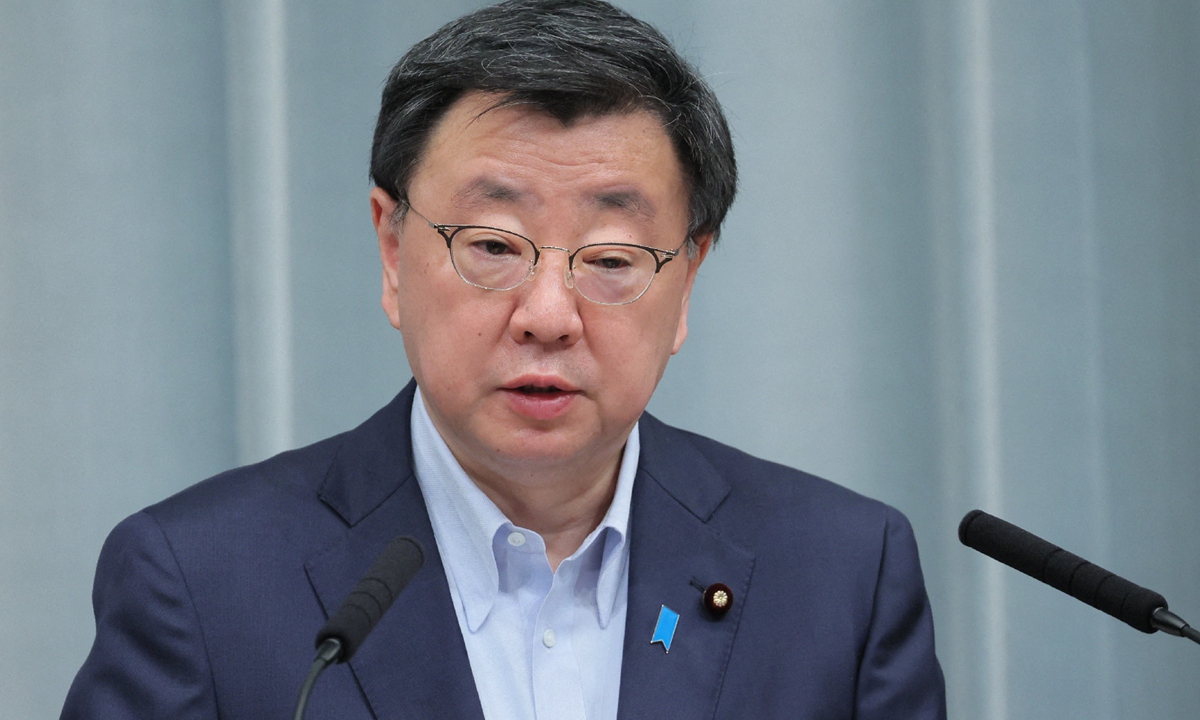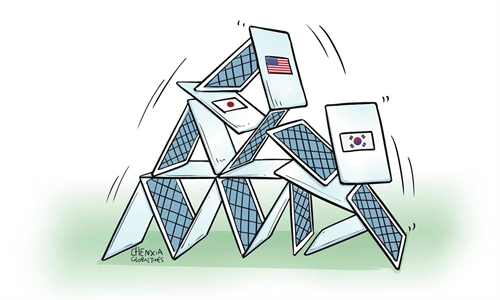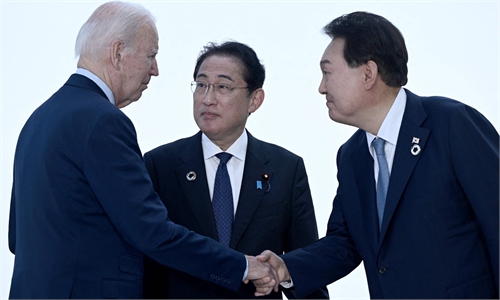Japan's lukewarm response to 'Chinese hacker' incident suggests unwillingness in cooperating with US on its Indo-Pacific strategy: experts

Japan's Chief Cabinet Secretary Hirokazu Matsuno Photo:AFP
As the US has shifted its tone over the "Chinese hacker incident" in a bid to assure and stabilize its military alliance with Japan, Tokyo's lukewarm response seemed to reveal its "unwillingness" to cooperate with Washington on its Indo-Pacific strategy at the cost of harming its own interests, experts said on Wednesday.
After a Washington Post report claimed that Chinese military hackers gained access to Japan's most sensitive defense networks, the Pentagon on Tuesday said it was "confident" about sharing intelligence with Japan, one day after US officials blamed Tokyo for its lack of competence in preventing the leak.
On Monday, the Washington Post claimed in a report that Chinese military hackers gained access to Japan's classified defense networks in 2020, accessing information about the US ally's military capabilities, plans and assessments of shortcomings, citing unnamed current and former US and Japanese officials.
The report said Tokyo has taken steps to strengthen its networks, but they are still deemed not sufficiently secure from Beijing, which could impede greater intelligence-sharing between the Pentagon and Japan's Defense Ministry.
Japan's Chief Cabinet Secretary Hirokazu Matsuno told a regular press briefing on Tuesday Japan could not confirm whether any security information had been leaked.
Japanese Defense Minister Yasukazu Hamada also denied any incidents of cyberattacks affecting the execution of the ministry's missions.
Lü Chao, an East Asia studies expert at the Liaoning Academy of Social Sciences, told the Global Times on Wednesday that the whole "incident" is nothing more than another staged drama orchestrated by the US, with the true purpose of smearing China, creating tension in the East Asian region, provoking China-Japan relations, thus roping in Japan and South Korea more closely so as to implement its Indo-Pacific strategy.
The change of attitude from the US side is primarily aimed at stabilizing the US-Japan military alliance, as Japan is its most important pawn to suppress China, Lü explained.
However, Japan's response indicates that it has not been affected by the so-called hacking activity, and has not considered it a serious matter. Or rather more bluntly, Japan does not believe that such an incident truly happened, the expert said.


